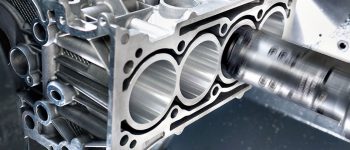The future of mobility: HELLER is well positioned

Photo by Heller Maschinenfabrik GmbH
HELLER has seen itself as an innovative and solution-oriented partner to its customers and will remain so in the years to come. To meet the challenges posed by the future of mobility, the company has adopted a forwarding-thinking approach.
Approx. 75% of the HELLER Group’s business comes from the automotive industry. This includes passenger cars and trucks as well as agricultural and construction machinery. Project business makes up approx. 60 percent of this, with the emphasis on cylinder blocks and heads, crankshafts and camshafts as well as transmission and chassis components.
So what are the options for a machine tool manufacturer looking back on a history of more than 120 years having practically grown up with the combustion engine and considering the fact that the future of mobility is said to be electric, which could mean resulting in a significant decrease in the number of machined components?
“The combustion engine is far from dead. Rather, we believe that in the near future, the mobility concept will comprise a combination of downsized combustion engines and electric drives,” says Manfred Maier, COO of the HELLER Group. “Our core competency will enable us to remain a sought-after partner for potential customers in the years to come. At the same time, we will increasingly search for new applications and complementary technologies.”
Development New Business & Technologies explores the possibilities
In response to the changing situation, HELLER has adapted its corporate structures accordingly. Development New Business & Technologies explores applications that will not immediately turn into key revenue contributors, yet are likely to gain significance in the future. The team’s experts are looking into the chances of additive manufacturing or new materials such as CFK.
CBC, or CylinderBoreCoating, is a technology-based exclusively on HELLER machining modules and an excellent example for the innovative complementary technologies expanding the company’s existing machine portfolio; CBC is based on the twin-wire arc spray technology used by Daimler and BMW. So far, the coating technology is the only method providing the necessary process dependability for use in high-volume production. From 2017 onwards, Daimler will use it in the production of approx. one million 4- and 6-cylinder engines per year at their facilities in Untertürkheim (Germany).
For more information, please visit: www.heller.biz
News Categories
- » NEWS HOME
- » Automation & Robotics
- » Industry 4.0
- » Material Handling
- » Sensors
- » Quality & Testing
- » Machine Vision
- » Laser & Optics
- » Metalworking
- » Motion Control & Drives
- » Hydraulics & Pneumatics
- » Process Industry
- » Renewable Energy
- » Agriculture
- » Home & Office Furniture
- » Environmental Tech




